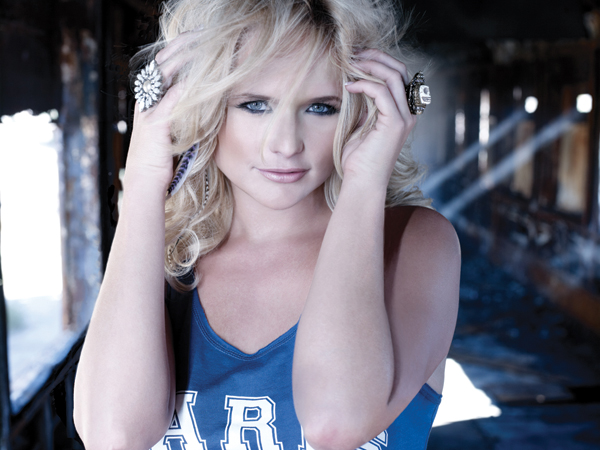Videos by American Songwriter
There is only so much you can take in about an album in a single listen. Even if you scribble notes on a legal pad when you go into the studio for a once-through sneak peek of Miranda Lambert’s new album Four The Record at the invitation of her record label, you’re bound to come away second-guessing what you think you know about what you heard – especially if it seems to defy common sense: Could it really be that one of contemporary country’s finest singer-songwriters got half of this batch of new songs from other sources?
“I haven’t ever counted it up,” Lambert admits over the phone about a week later. “I keep meaning to do that. I haven’t gotten to live with [the album] very much myself [yet]. I co-wrote or wrote, yeah, half of ‘em at least.”
The liner notes later confirm that her estimate’s not too far off; she had a hand in writing six of the album’s fourteen songs. For almost any other current country hit-maker, that would be a perfectly normal ratio. But for her, it’s a significant departure.
Lambert wrote or co-wrote all but one song on her head-turning 2005 debut Kerosene and a solid majority of those on both 2007’s Crazy Ex-Girlfriend and 2009’s Revolution. When she’s recorded outside songs, it’s been her habit to turn to serious singer-songwriters from the roots and folk end of the spectrum, like Gillian Welch & David Rawlings, Patty Griffin, Julie Miller and John Prine.
There are songs by writers like that on Lambert’s new album: another from Welch & Rawlings (“Look At Miss Ohio”), an Allison Moorer composition intended specifically for Lambert (“Oklahoma Sky”), and a Brandi Carlile cover (“Same Old You”). But there’s no missing the fact that, for the first time, Lambert has significantly upped the number of songs she’s recorded (five) by pairs and trios of Music Row tunesmiths.
Generally speaking, the assumption has been that a major label recording artist who’s had a number of hits might be able to earn her way toward doing things like writing her own stuff and cutting obscure songs she loves. In recent years, there’s also been a trend of well-established non-writers like George Strait and Martina McBride getting in on songwriting. But Lambert was already standing by her creative self-sufficiency at the very beginning of her recording career. And here she is four albums in – now a three-time platinum seller, winner of awards, filler of stadiums and conqueror of radio – turning the accepted arc of artistic development on its head, further expanding the reach of her voice by further opening her ears.
“I’d love to write every song on the record,” Lambert offers, “but I don’t think that’s fair to the record, because there’s some songs that I wrote that aren’t as good as some of the others that I put on there. It is kind of a choice of ‘May the best song win.’”
She’s always said her goal is to uphold artistic standards that are important to her while having as much commercial success as she can. “Well,” she explains, “I feel like people have done that, and I just didn’t see why I couldn’t do the same thing. I feel like Dixie Chicks did that too, and Dwight Yoakam, and Steve Earle for a while had some commercial success and he was still true to himself. And I feel like it’s time that artists bust that door down again.”
For a moment there, Lambert almost makes having it both ways sound easy. In reality, it’s been anything but. Yoakam and Earle, it’s worth noting, found their mainstream success in a vastly different country landscape. “I just wasn’t going to take ‘No,’” she says. “I didn’t go away. Finally I worked on my relationship with radio and realized that they loved me back, we met in the middle and now it’s been going great ever since then.”















Leave a Reply
Only members can comment. Become a member. Already a member? Log in.